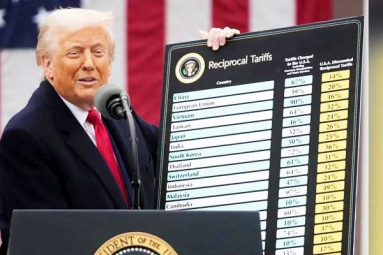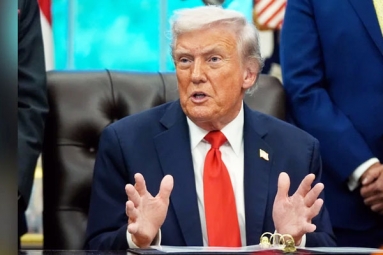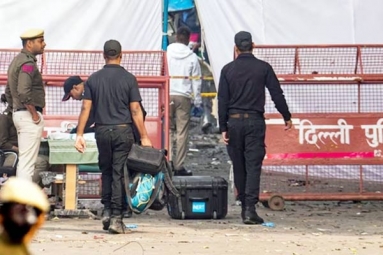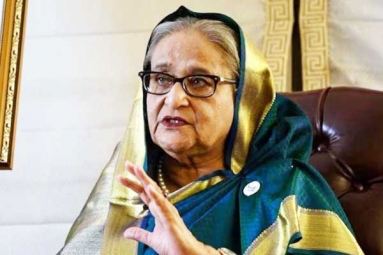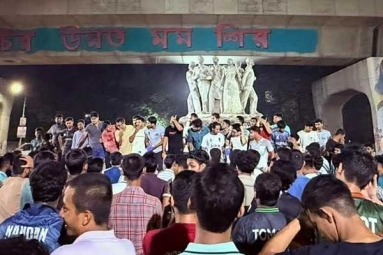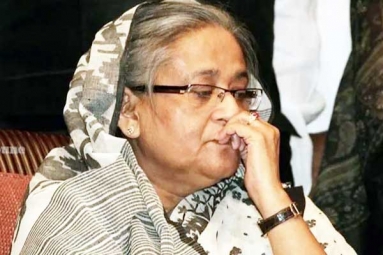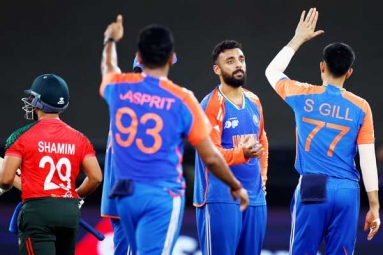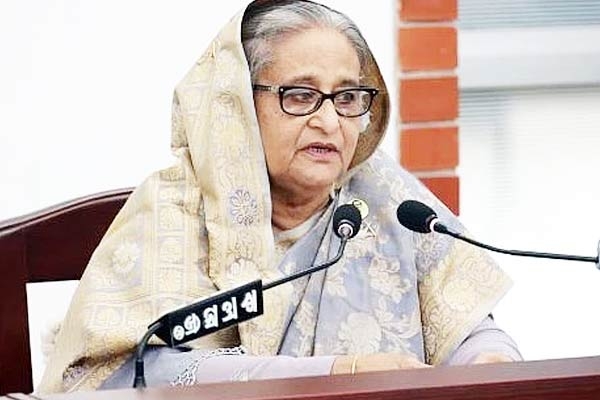
(Image source from: Nationalheraldindia.com)
The temporary government led by Muhammad Yunus in Bangladesh is planning to ask Interpol for assistance in extraditing former Prime Minister Sheikh Hasina and Home Minister Asaduzzaman Khan Kamal from India. This comes just days after the International Crimes Tribunal in Dhaka sentenced both of them to death for crimes against humanity. Various Bangladeshi news sources have reported on the intention to use Interpol to bring Hasina back. The prosecutor from the ICT is moving forward to ask for Interpol's help, shortly after Dhaka's foreign office mentioned it will reach out to New Delhi for a similar request. Sheikh Hasina and Asaduzzaman Khan Kamal were both given death sentences while they were not present in court for their roles in humanity-related crimes during the protests in July-August 2024. However, another individual, former police chief Chowdhury Abdullah Al-Mamun, who agreed to cooperate with the authorities, received a five-year prison sentence instead of the death penalty.
After the student protests in July-August 2024 were taken over by Islamist groups, Sheikh Hasina lost her position and reportedly escaped to India, where she is believed to be in New Delhi. Meanwhile, Asaduzzaman Khan Kamal spoke to India Today TV on Monday but did not reveal where he currently is; sources suggest he is also in India, living in self-imposed exile. Following their sentencing on Monday, prosecutor Gazi MH Tamim announced on Tuesday that steps are being taken to request an Interpol Red Notice for these two individuals based on their conviction warrants, according to a Bangladeshi newspaper.
"The two individuals are on the run, and we have already sent a request to Interpol along with the Tribunal's arrest order, asking them to issue a Red Notice. Now we will request, through the foreign ministry, a new Red Notice based on the conviction warrant rather than the arrest order," said ICT prosecutor Gazi MH Tamim. In response to the verdict on Monday, Asif Nazrul, who is the adviser for Law, Justice, and Parliamentary Affairs in the Yunus administration, indicated that Dhaka would officially contact New Delhi to request the extradition of Sheikh Hasina and Kamal. While India has not directly addressed the requests from Dhaka, it provided a careful response after the ICT announced the death sentences for the two, stating it remains dedicated to the "best interests of the people of Bangladesh" and will "always interact positively with all parties involved."
The police in Bangladesh previously requested Interpol red notices for 12 suspects who are said to be hiding and are accused of serious crimes against humanity, including Sheikh Hasina, following the filing of cases last year. The foreign ministry of Dhaka mentioned that it was completing a note to send to India and could dispatch it in a few days. A high-ranking official indicated that Dhaka had reached out to India in December 2024 asking for Hasina's extradition but had not received any reply, according to the Daily Star. India and Bangladesh have a 2013 treaty on extradition that requires both nations to return convicted criminals. Nonetheless, the agreement also permits refusal in situations seen as "political," and experts believe Hasina's situation could be legally ambiguous and politically delicate. At the same time, the ICT prosecutor stated that Hasina and Kamal must turn themselves in and submit appeals within 30 days, as dictated by the special tribunal law.
In reaction to the death sentence, both Hasina and Kamal have claimed that the ruling was influenced by political motives and did not follow the proper legal process. Hasina's Awami League party criticized the decision as "given by a biased tribunal run by an unelected government without a democratic mandate." The party described the process as "unfair and politically driven." Former Bangladesh home minister Asaduzzaman Khan Kamal expressed to India Today TV that the ruling was "anticipated" and claimed that the court was set up specifically to "target Awami League leadership." Kamal also highlighted Pakistan's response to the ruling, contending that it exposed "the forces behind this."
As Dhaka is ramping up its efforts to seek extradition, how India responds will be monitored closely, as it may influence the future of Bangladesh's longest-serving prime minister.




